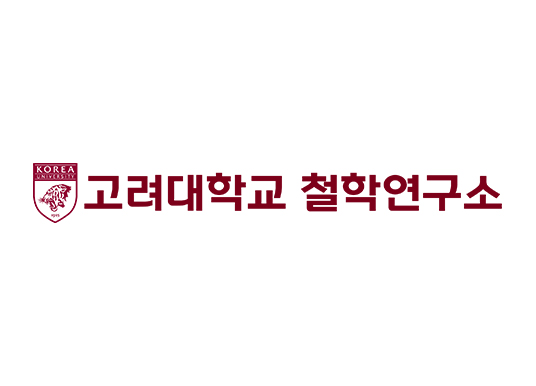5⋅18항쟁의 윤리사상
The Ethical Thought of the May 18 Uprising
본 논문은 5⋅18항쟁의 윤리성에 주목한다. 지금까지 5⋅18 항쟁에 대한 법적⋅역사적⋅사회과학적 연구는 많이 수행되었지만, 사상 적인 관점에서의 연구는 드물다. 철학은 개별 철학자의 사상뿐만 아니라 ‘사람들’의 사상에도 관심을 가져야 한다. 따라서 사람들이 모여 성취한 5⋅18항쟁의 사상도 철학의 대상이 되어야 한다. 5⋅18항쟁은 역사적⋅ 윤리적으로 중대한 의미를 갖기 때문에, 그 윤리사상은 한국 현대철학사 와 고등학교 윤리 교과서에 당연히 포함되어야 할 것이다. 본 글은 5⋅18 항쟁의 윤리사상의 체계를 세 가지 관점들로 분별하였다. 먼저, 5⋅18항쟁 은 단지 정치적이고 사회적인 한 현상으로만 규정될 수 없으며, 삶으로 서, 윤리적 방향성이 선명하게 제시된 사건이었다. 그런 점에서 본 논문 은 5⋅18항쟁이 사상적으로 기여한 것이 정치와 사회의 기본 바탕이 윤 리라는 고전적 실천 원리가 현대적 이념인 ‘모두의 자율성’과 함께 선명 하게 제시됨으로써 ‘윤리적 민주주의’의 관점과 방향성을 분명하게 정립 했다는 점에 있음을 규명하였다. 이것은 소위 계급의식과 윤리의식이나 정치의식이 본래 별개가 아님을 보여주며, 윤리의 기본 바탕 내에 민주 주의에 대한 인식과 계급의식이 자리한다는 점을 내포한다. 그리고 나아 가 5⋅18항쟁은 삶의 기준이 윤리이며, 윤리의 기준은 오직 인간 존엄성에 있음을 알려준다고 논증하였다. 5⋅18항쟁은 인간 존엄성을 지키기 위한 헌신적인 저항이었으며, 이것은 자기 자신과의 윤리이자, 타인과 공 동체를 향한 윤리였으며, 나아가 역사의 고통에 대한 ‘헌신의 윤리’였다. 또한 세 번째로, 본 글은 윤리적 민주주의와 인간 존엄성을 향한 헌신의 관점에 종합하여, 5⋅18항쟁 공동체가 항쟁의 고통과 함께 정립한 ‘윤리 적 감정’들을 죄책감과 인정(人情)의 윤리로 포괄하여 제시하였다. 이러 한 5⋅18항쟁의 윤리사상은 사람들에게 삶의 윤리적 원칙을 상기하도록 만들며, 삶의 목표와 방향성을 숙고하도록 만든다.
This paper focuses on the context of the ethics of the May 18 Uprising. Research on the May 18th Uprising has accumulated a lot of results, but compared to legal, historical, and social scientific research, research from an ideological perspective is insufficient. In the modern world, what is important now is not only the ideas of individual philosophers, but also the ideas of people, i.e., the uprising. In this respect, this paper also implies that the ethical thought of the uprising or the ethical thought of the May 18th Uprising should be treated in the history of modern Korean philosophy or high school ethics textbooks. This paper categorizes the ethical thought system of the May 18 Uprising from three perspectives. First, the May Uprising cannot be characterized as just a political and social phenomenon, but as life as a whole, so it was an event that clearly presented the basic foundation of morality. In this respect, this treatise identifies that the ideological contribution of the uprising is that it established the perspective and direction of ‘ethical democracy’ by clearly presenting the classical practice principle of ethics as the basic foundation of politics and society along with the modern ideology of everyone’s autonomy. This shows that the so-called class consciousness and ethical or political consciousness are not inherently separate, and implies that the awareness of democracy and class consciousness are located within the basic foundation of ethics. Further, this paper argued that the May 18 Uprising taught us that the standard of life is ethics, and the standard of ethics is only human dignity. The May Uprising was a dedicated resistance to defend human dignity, and it was an ethics with oneself, an ethics toward others and the community, and an ethics of the suffering of history. Third, this paper presents the various emotions that the May Uprising community defined according to the suffering of the uprising as an ethics of guilt and affection and synthesizes the perspectives of ethical democracy and human dignity, and the ethics of guilt and affection. These ethical thought of the May Uprising remind people of the ethical principles of life, and make them contemplate the goals and direction of their lives.
고려대학교 철학연구소, 전남대학교 손홍국

